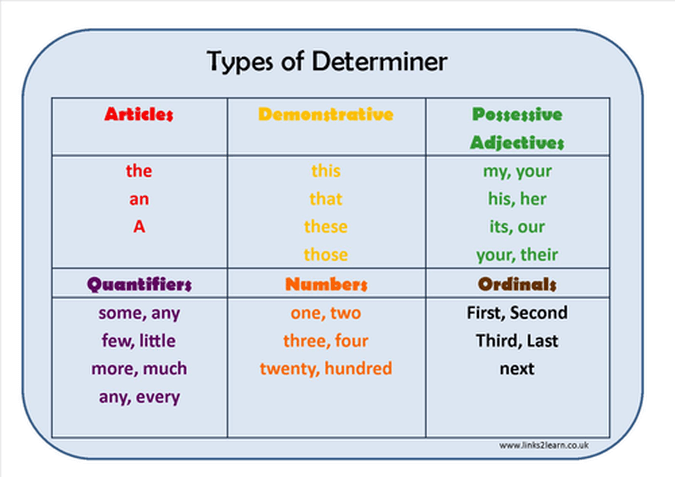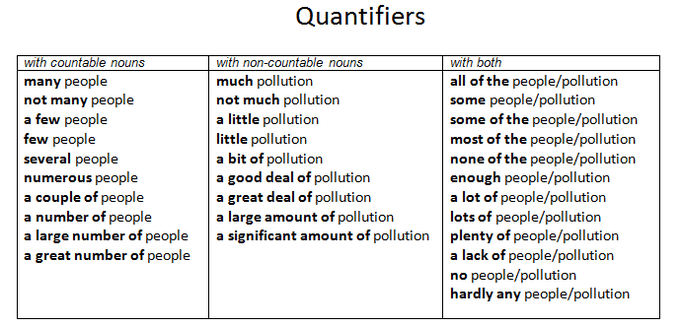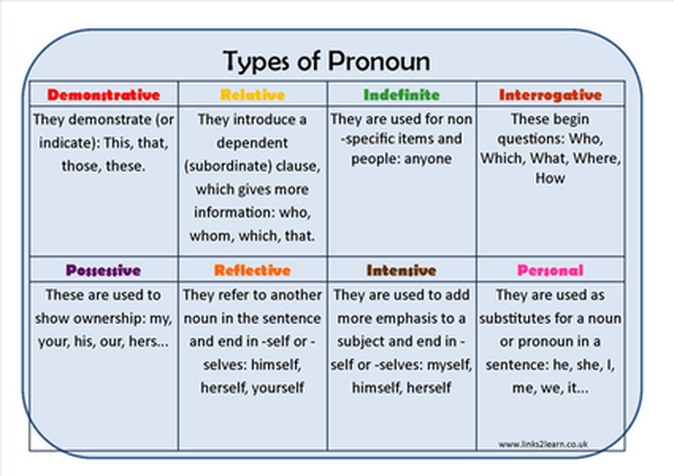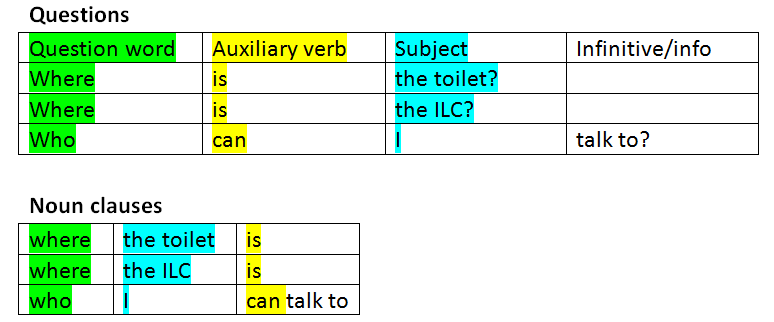Turn questions into noun clauses by swapping the auxiliary verb and subject
Once you've made your noun clause, put it in a noun position (usually a subject, object, complement, or after a preposition) like in these examples:
- Who I can talk to is important for me to know.
- It's important for me to know who I can talk to.
- I asked about who I can talk to.
That leaves us with Possessive, Reflective, Intensive, and Personal pronouns, which are clear in the pronoun table. You'll use these in spoken or informal English, but not really in academic English except for it, which you'll use all the time in both!
Which determiners should you be using?
In academic English at REW, use the less personal ones often and avoid personal pronouns like 'we' or 'my'. At uni, this might change depending on your lecturer or course, so ask if you're not sure. In spoken or informal English, you should use all of the determiners we've covered!
How else can I create cohesion?
You can use synonyms or similar words to create cohesion as well. In both written and formal English (like an oral presentation or email to someone with authority), repetition is not used except very occasionally for dramatic effect or to get attention. This means you need to use a range of vocabulary. In other words, you need to change your words all the time.
Use synonyms or similar words
When you do this, you also create a nice flow, because the words all follow the same theme or idea. This is called 'lexical cohesion' because we create connections by using words from the same subject area. Let's look at an example. Read this paragraph and think about how many words are used for 'people':
The citizens of Victoria were very happy where they lived. They loved the weather and nature around them and the cities and towns. The people wanted to show the whole country how happy they were, so inhabitants got together and organised some photos.
Did you get them all? Here are the different words used to mean 'people':
- citizens
- they
- them
- the people
- inhabitants
Think about this when you write or speak in formal situations because it's a great way to produce better writing and formal speaking. And for students, this means higher marks! In informal spoken English when you're outside of the academic world, you can use your voice and body language to do this rather than change words around.
That's enough for now as it's a huge topic! Next time, we'll look at conjunctions and linking words. Please leave your comments and questions below.
To improve your cohesion, software programs like Tense Buster, grammar books and apps, RMIT Learning Lab information, or the Study Support Teachers can be useful.









